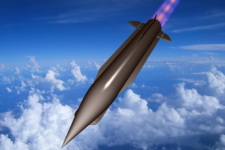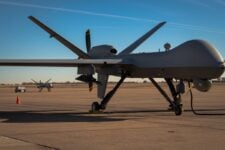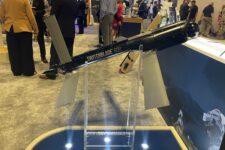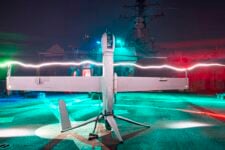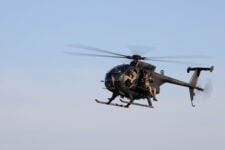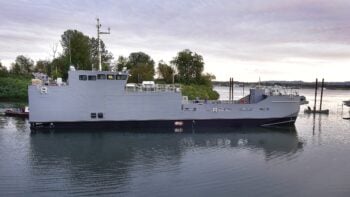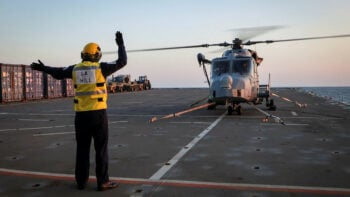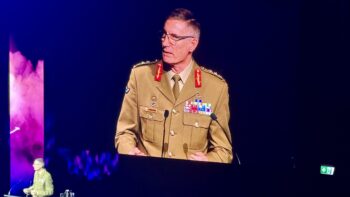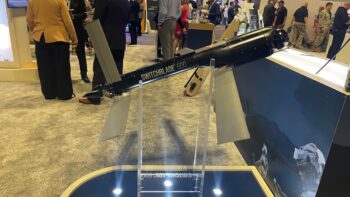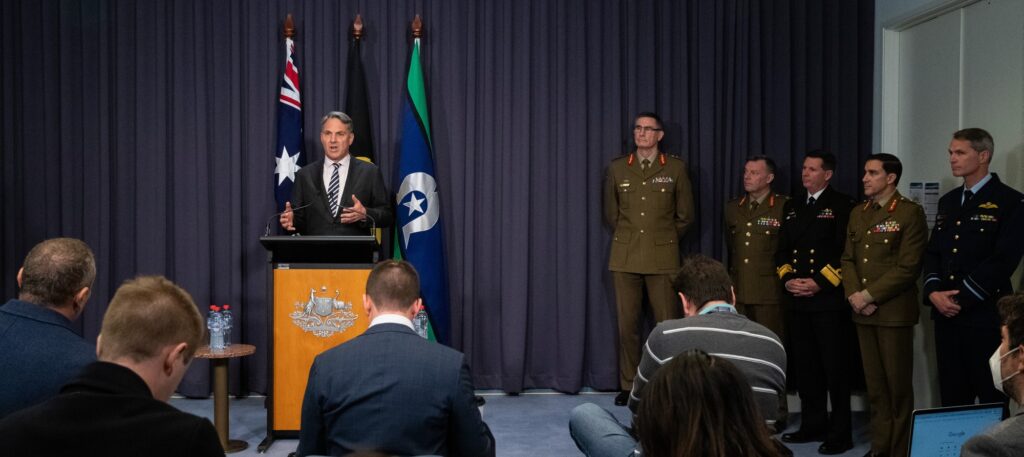
Australian Defense Minister Richard Marles announces the new senior leadership team of the Australian Defence Force at Parliament House. (Screenshot by Breaking Defense)
SYDNEY: Newly-minted Australian defense minister Richard Marles today announced a striking — though not unprecedented — extension of the terms of the senior military leadership, including the chief of defence force, Gen. Angus Campbell.
“We arrive at a time which is as strategically complex as any since the end of the Second World War in terms of our national security and the needs of our defence procurement,” Marles said in a release. “That is why today, the Albanese Government announces the terms of the Chief of the Defence Force, Angus Campbell AO DSC, and the Vice Chief of the Defence Force, Vice Admiral David Johnston AC RAN, will be extended by two years.”
Labor Prime Minister Anthony Albanese’s cabinet, which must approve senior military appointments, also decided to keep the chief of Joint Operations, Lt. Gen. Greg Bilton, for two more years. This unique job puts one person in charge of all of Australia’s warfighting, operations and exercises.
Russia’s ongoing war of invasion in Ukraine, combined with China’s increasingly aggressive behavior, certainly factored into the decision. But perhaps the single concentrated point of focus is ensuring AUKUS — both the nuclear attack submarines and the other technology efforts — doesn’t flag.
RELATED: New info on AUKUS sub deal ‘shortly’: NSC’s Kurt Campbell
“It’s not just the continuity. It’s the fact that if they changed people you would have risked some delays” as new leaders are brought up to speed, said Neil James, head of the non-partisan Australia Defence Association. “The big challenge for AUKUS has always been the timeline, and this could have affected it.”
James noted that the extension of Campbell’s term is “unusual, but it has been done before.” It’s not clear if this many leaders have been extended at the same time before.
Marle’s statement noted that “the Albanese Government is putting a premium on continuity. This applies to strategic advice and the timely and effective delivery of key procurements including through the AUKUS framework. Australia cannot afford any further delay in the next generation of submarines.”
It’s certainly a busy time for defense leadership here. The government is pressing for a final decision by March 2023 on the submarine program, including whether Australia will need to buy and build a sub to bridge the apparent gap between the Collins class and whichever nuclear sub is bought. On top of that, the government will be pursuing a Force Structure review to be completed in the same time frame. This is not the highest level review the military can do, but it is a close assessment of which weapons Australia should buy, how many they should buy and to what end.
While there will be stability the top, Marles announced new leaders for Australia’s Navy, Army and Air Force.
Rear Adm. Mark Hammond, after being promoted to vice admiral, will serve a four-year term as chief of Navy. Given the AUKUS focus, it’s important to note that Hammond has had what the release called “an extensive career as a submariner.”
The new chief of Army will be Maj. Gen. Simon Stuart, who will be promoted to lieutenant general. He’s well placed for handle the force structure review since his last job was head of land capability, where he decided the Army’s weapons design, modernization and sustainment.
Finally, Air Vice-Marshal Robert Chipman will be promoted to air marshal and serve as chief of Air Force. Chipman, a fighter pilot, leaves his job as head of Military Strategic Commitments. It’s an intriguing job, where the holder provides strategic military advice, planning guidance and military advice to Australia’s “national crisis management machinery.”


